In this perspective, Bahtiyar Yilmaz and Andrew Macpherson summarize the features and fluctuations of the microbiota along the small intestinal tract, focusing on humans, and discuss physicochemical factors and assessment methods, including the technical challenges of investigating the low microbial biomass of the proximal small bowel.
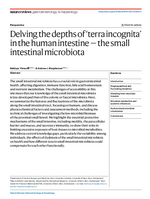
Congratulations to the prize winners Prof. Andrew Macpherson, Jakob Zimmerman, Florian Schmidt, Tanmay Tanna and Randall Platt.
This collaborative work from our lab and the ETHZ was recently published in Science with the title: "Noninvasive assessment of gut function using transcriptional recording sentinel cells”

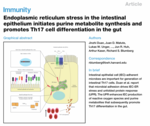
Congratulations to Prof. Dr. Andrew J. Macpherson for his remarkable achievement.
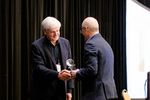
Congratulations to Dr. Tim Rollenske & Dr. Andrew J. Macpherson.

for their B cell-microbiota study on 29th SGG-SGVC-SASL Annual Meeting in Interlaken, Switzerland, 2021

for his IBD studies on 27th SGG-SGVC-SASL Annual Meeting in Interlaken, Switzerland.
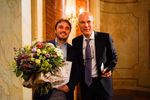
from the University of Bern for her research achievements.
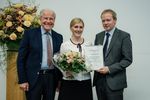
Congratulations to Prof. Dr. Andrew J. Macpherson for his remarkable achievement.

for receiving the Peter Hans Hofschneider Professorship and for starting her group „Microbiota and the developing immune system.“
To Dr. Ziad AI Nahbani for receiving Swiss Immunology Early Career Award
To Dr. Tim Rollenske for receiving PhD thesis prize of the Paul-Ehrlich Society
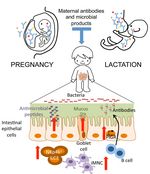
Our research aims to understand how humans and other mammals co-exist with enormous numbers of microbes in the intestine. We live with enormous numbers of microbes on our body surfaces: these are collectively termed our microbiota. The intestine is a special surface, because it is a continuous tube from the mouth to the anus, which digests the food we eat and absorbs our intestinal secretions and the fluid that we drink. The lower intestine has the highest concentration of microbes anywhere – equal approximately to the number of cells in our bodies.
These microbes are not only passengers that profit from the warm environment, living off the food that we cannot digest, but they rather freely exchange chemicals with our bodies. Although the biomass of the microbiota is mainly restricted to our body surfaces, except when we suffer from an infection, the chemical exchange means that all our organ systems are shaped by the presence of these microbes.
Many conditions, including inflammatory bowel disease (Crohn’s disease and ulcerative colitis), forms of arthritis, allergy, diabetes, liver disease and obesity are associated with alterations in the microbiota or defects in how our bodies adapt to their presence: our long-term goal is to provide a fundamental understanding of these events to be able to provide new treatments for patients with these conditions.
Part of our research is directly in human patients, for example to study the composition and chemical exchange of the microbiota in patients with inflammatory bowel disease and to determine how this affects the course of the disease and its response to therapy. Although we are born almost sterile, body surfaces become rapidly colonized after birth – once this has happened there is no way back to sterility because antibiotics will reduce but not eliminate the microbes. One way around this problem is to study mice that are kept under sterile conditions without a microbiota. These mice are perfectly healthy: it is possible to introduce a microbiota, to follow the changes that take place after colonization of body surfaces with microbes and with exchange of their metabolic (chemical) products. In mice, it is also possible to ensure that every animal has essentially the same composition of bacteria in the microbiota, rather than the differences from individual to individual in the human population. This allows us to model the fundamental chemical interactions that shape the body and its susceptibility to disease.
This website uses cookies and third-party applications to improve user experience. To protect your privacy, you can control and manage these applications here. For more information, please read our Privacy Policy.
